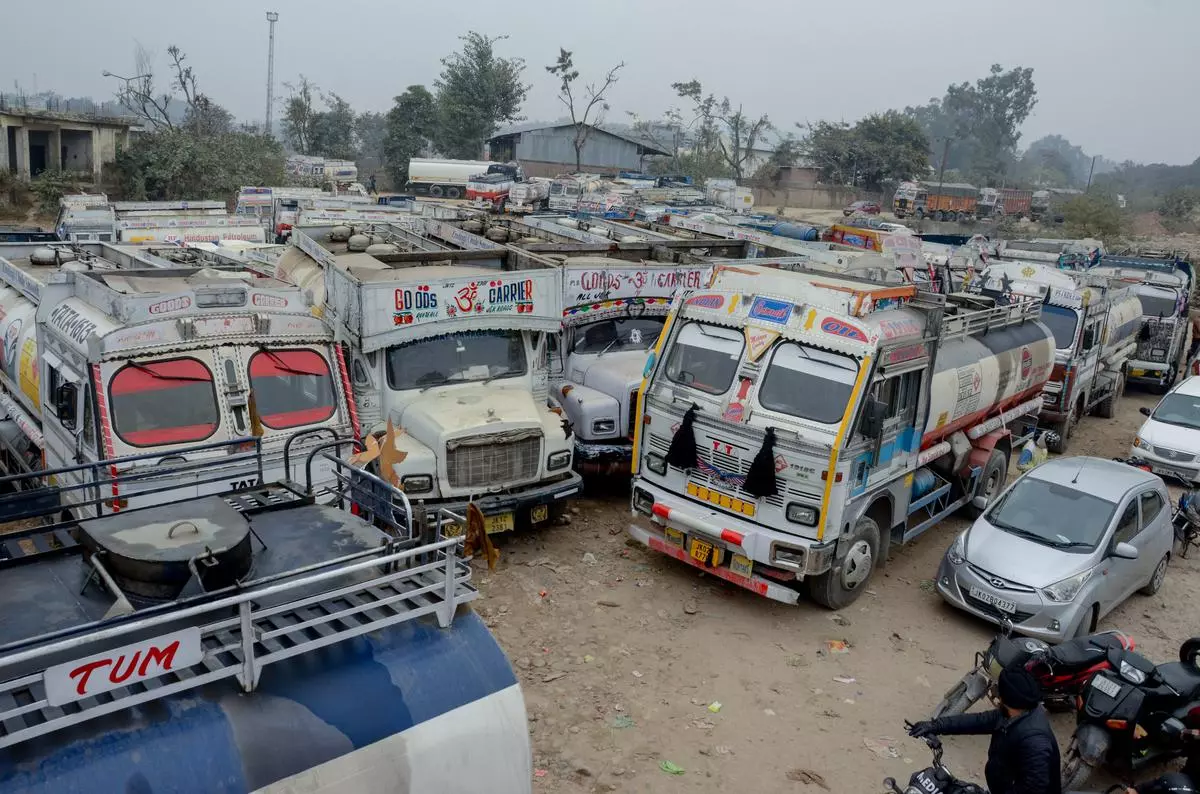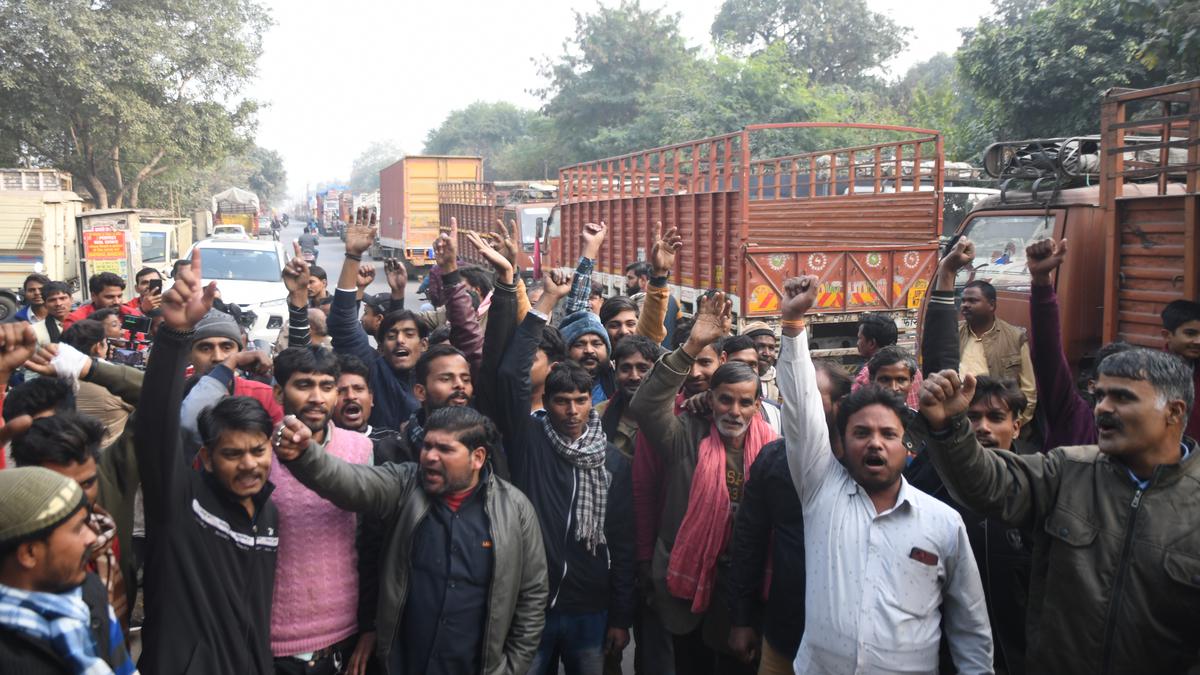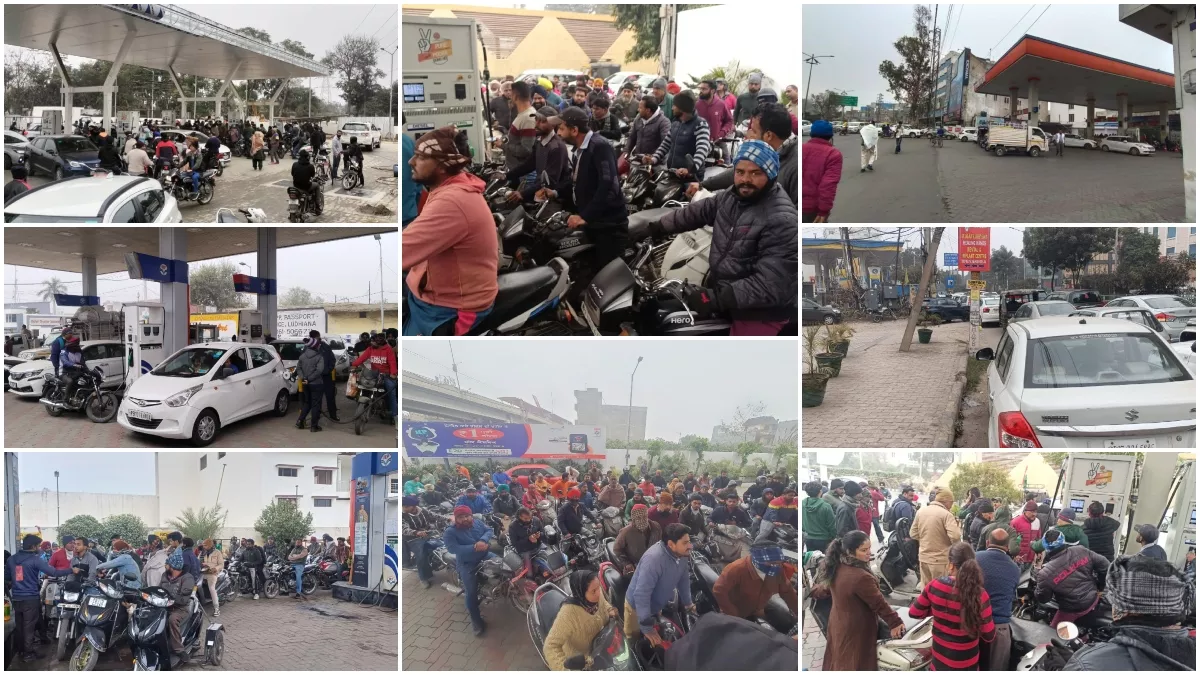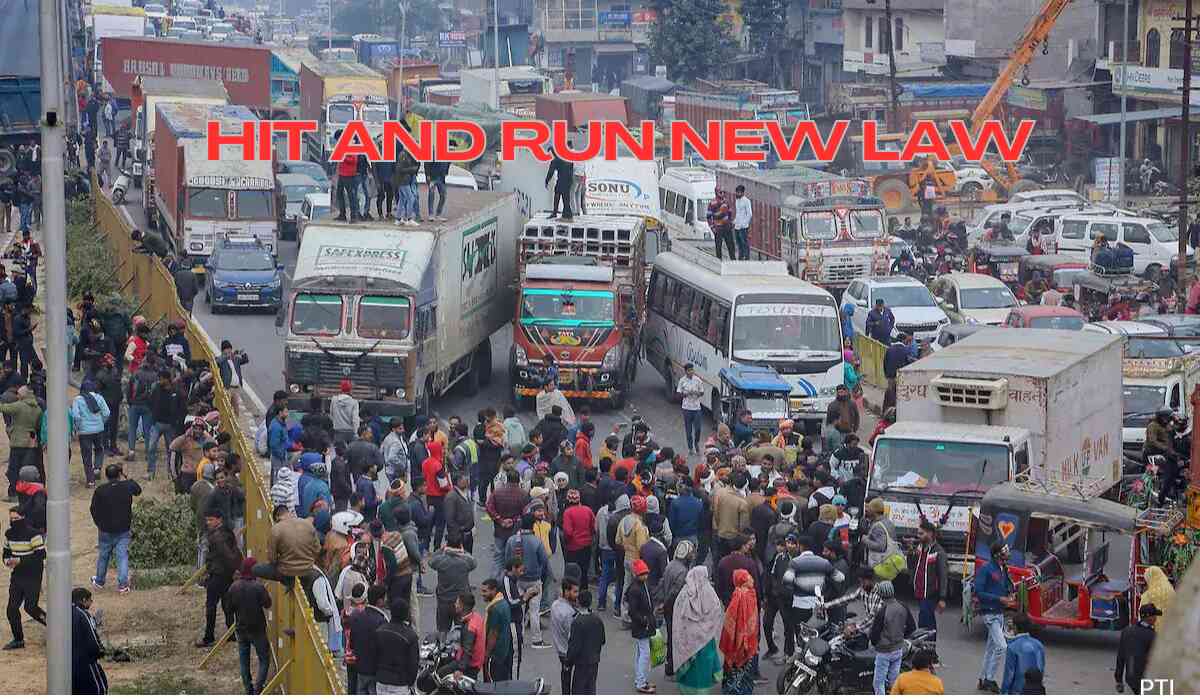Transport unions nationwide convened at Jantar Mantar, protesting vehemently against the Union government's recent legislation on hit-and-run cases. The new law, part of the Bharatiya Nyay Sanhita bill, imposes a hefty penalty of `10 lakh and a potential 10-year imprisonment for offenders.
President of the All Dilli Auto-Taxi Transport Congress Union, Kisan Verma, emphasized the potentially devastating impact of these laws on families, stating that drivers don't flee deliberately but out of fear of reprisals. He stressed the need for stakeholder consultations before enacting such stringent measures.
The outcry expanded beyond Delhi, with the UP Transport Association highlighting the disproportionate fine relative to drivers' modest monthly incomes. Truck drivers previously staged protests but called off their strike. Despite assurances from the Home Ministry, taxi drivers continued their demonstrations in the national capital.

The protest at Jantar Mantar drew support from multiple transport unions, all united against the proposed penal provision. Drivers voiced concerns about their inability to afford such steep penalties, vowing not to resume work until the law's withdrawal.
President of the Delhi Transport Union, Sanjay Samrat, decried the government's policies, accusing them of fostering fear and unemployment among drivers. He emphasized the need for the law's official withdrawal and highlighted proposals made to the Home Ministry for minimizing road accident casualties.
Despite the protest, public transportation remained unaffected, ensuring minimal disruption for commuters.

Understanding the New Law:
The Bharatiya Nyay Sanhita's recent enactment introduces severe penalties for hit-and-run incidents. Offenders causing fatal accidents and fleeing without reporting may face imprisonment for up to 10 years and substantial fines. The law distinguishes between negligent acts causing death, outlining penalties ranging from five years imprisonment to the severe consequence of fleeing the scene, attracting a 10-year sentence.
Experts stress the necessity of clear guidelines for reporting accidents, safeguarding against potential misuse, and defining acceptable evidence for claims by victims or accused individuals.

Earlier Legislation:
Previously, hit-and-run cases fell under Section 304A of the Indian Penal Code, with penalties of up to two years imprisonment upon identification. The Bharatiya Nyay Sanhita marks a substantial shift towards stricter consequences for such offences.
© Copyright 2023. All Rights Reserved Powered by Vygr Media.
























